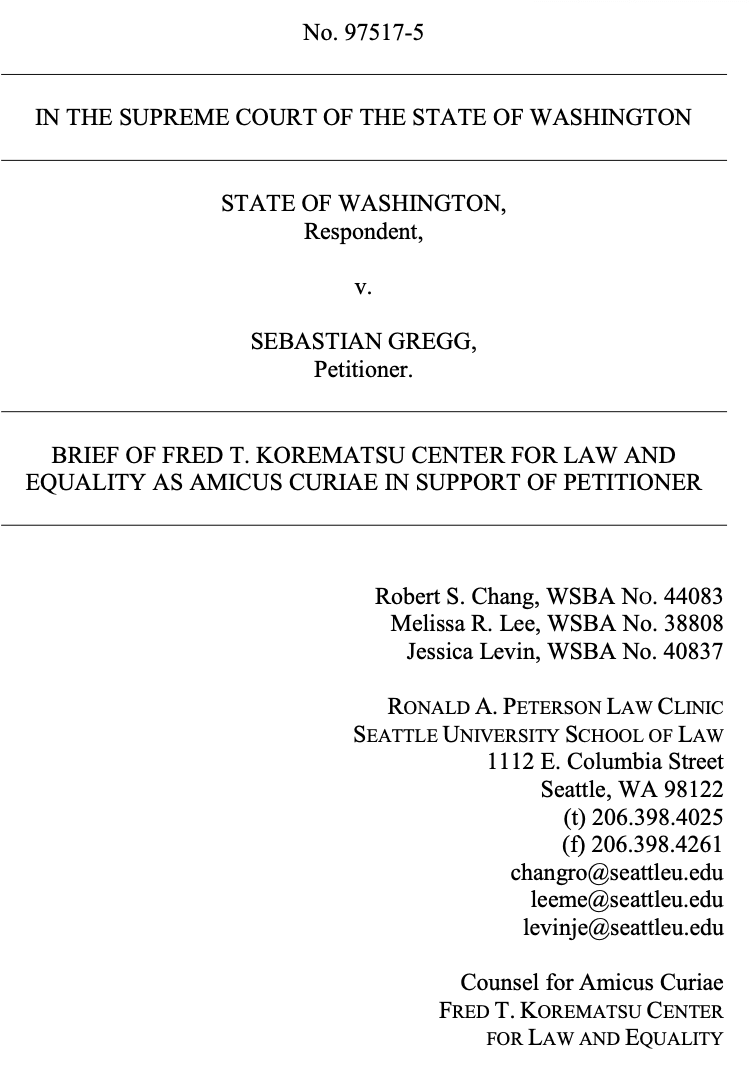
Summary of Argument
Though State v. Houston-Sconiers was a significant step toward ensuring that sentencing courts exercise their discretion to treat children differently than adults, this discretion is not being exercised as the Court intended in Houston-Sconiers. Both a changed legal landscape and new data require the Court to consider whether article I, section 14 mandates a presumption that children are entitled to mitigated sentences.
Since Ramos held that the Eighth Amendment did not require the State to prove that a standard range sentence is appropriate, this Court’s interpretation of both the Eighth Amendment and article I, section 14 have changed dramatically. Since Ramos was decided, this Court has expanded the protections afforded to youth in a number of contexts beyond the narrow issue presented in that case. Nor has the Ramos Court’s assumption that most children would receive a sentence below the standard range due to their youth come to pass. 187 Wn.2d ¶¶ 18, 32. And indeed, Caseload Forecast Council data gathered after Houston-Sconiers suggests the overwhelming majority of children convicted in adult court do not receive mitigated sentences.
Flipping the presumption is necessary because Houston-Sconiers did not directly alter the presumption of adult-equivalent culpability that exists when a child is declined into adult court. Instead of placing the burden on children to prove their own diminished culpability under RCW 9.94A.535(1), a sentencing court must begin with a rebuttable presumption that children are entitled to a mitigated sentence, both with respect to the standard range and any applicable enhancements. Flipping the presumption of adult-equivalent culpability that inheres in auto-decline brings the promise of Houston-Sconiers into alignment with the heightened protection of article I, section 14.
Finally, flipping the presumption is also sensible because it is more likely to ensure the constitutional treatment of children than will the status quo, which leaves this Court as the final arbiter as to whether a sentencing court erred in its consideration and weighting of the mitigating circumstances associated with youth.